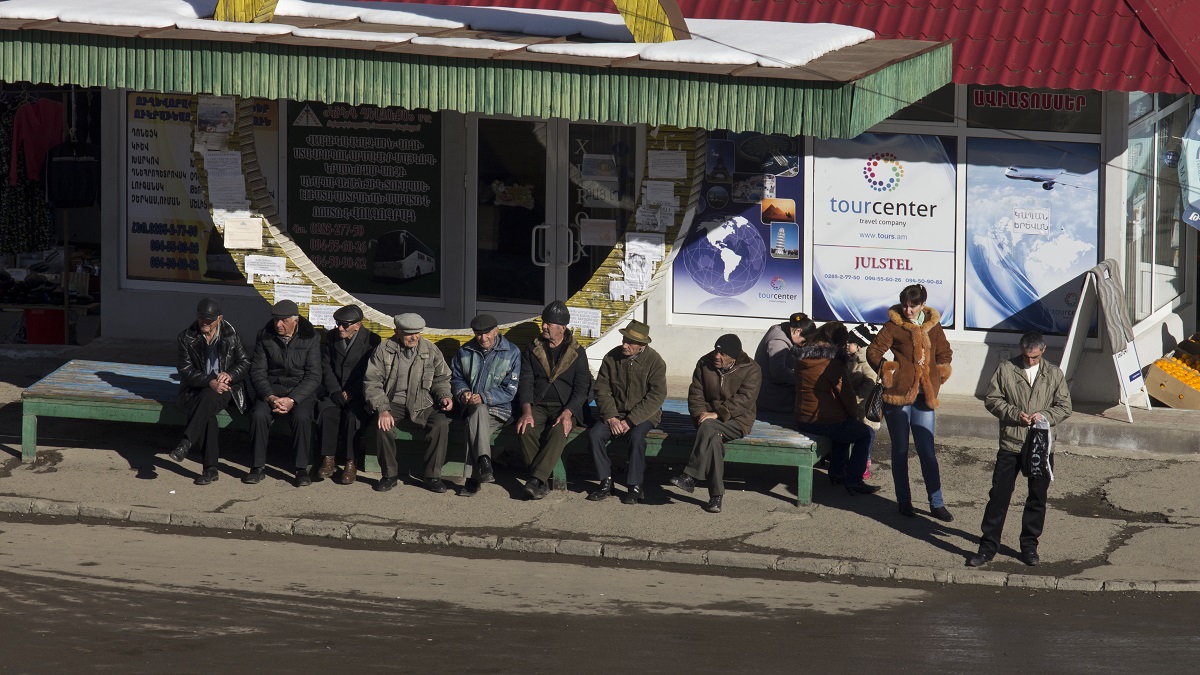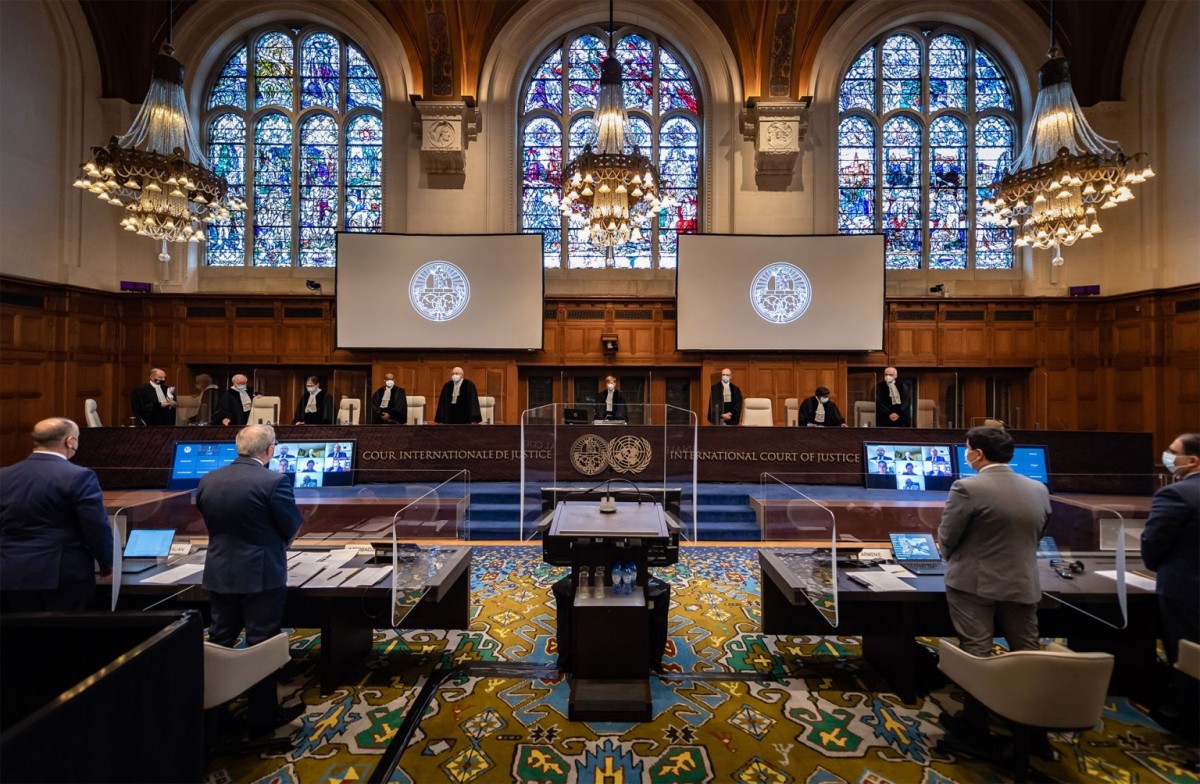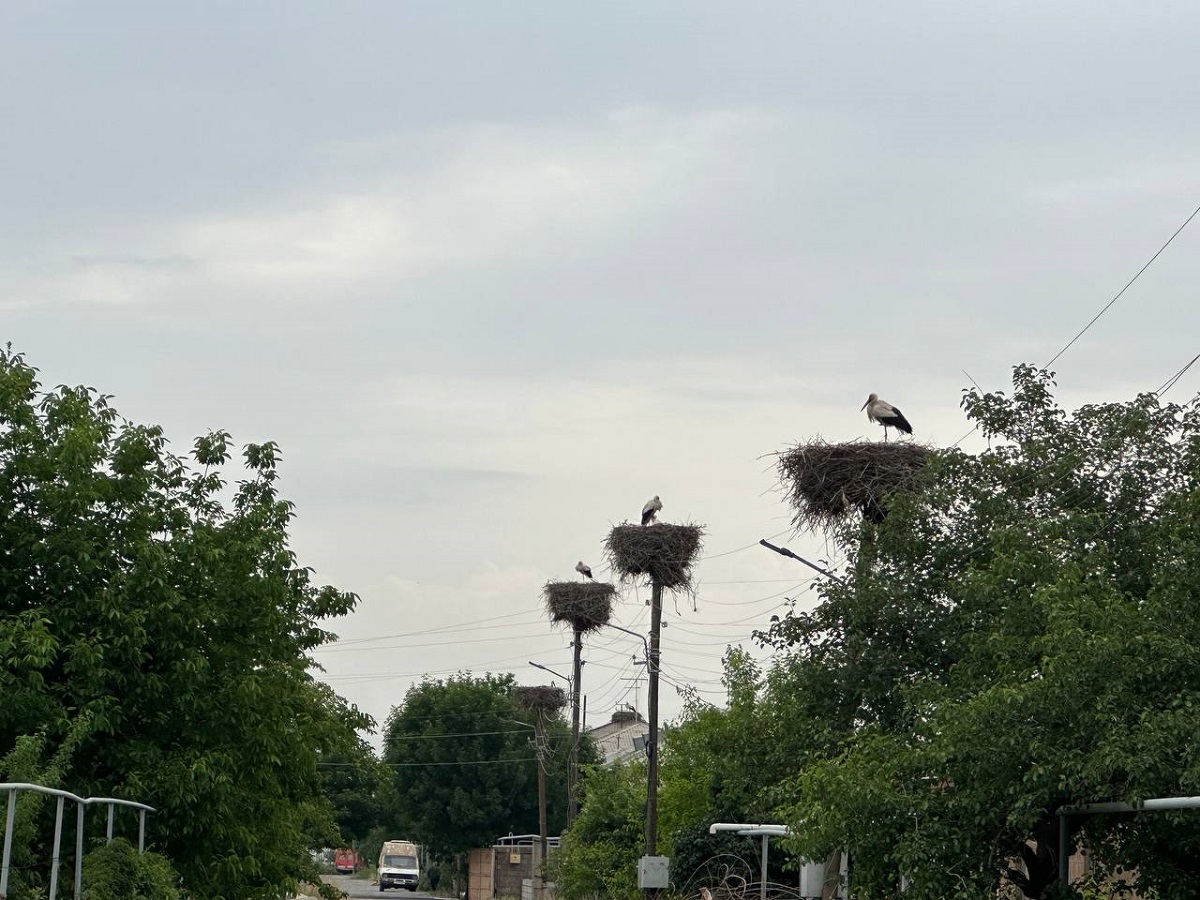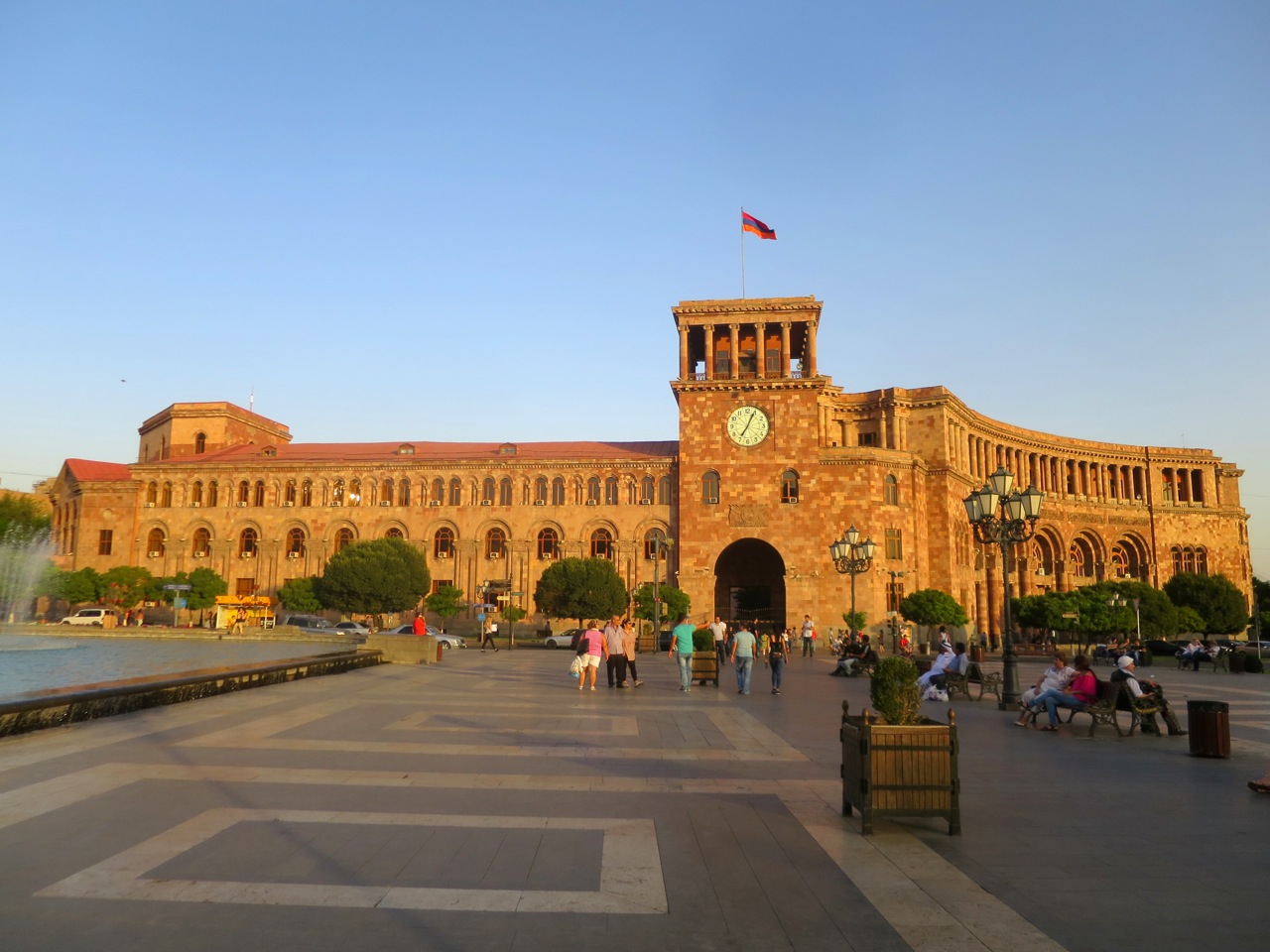“Armenia is not Russia’s ally in the war with Ukraine” – Pashinyan interview with CNN
Pashinyan interview with CNN Prima News
Armenian Prime Minister Nikol Pashinyan, in an interview with CNN Prima News, talked about the country’s geographic and geopolitical problems, and the need to improve relations with its closest neighbors. He answered a question about the blockade of Nagorno-Karabakh, the humanitarian crisis in the region, and “why Azerbaijan is doing all this.” The prime minister also touched upon allied relations with Russia and Armenia’s problems with the CSTO military bloc operating under its leadership. The host of the program also asked Pashinyan personal questions, in particular about his relationship with Vladimir Putin and the challenges he faced when he took office after the 2018 Velvet Revolution.
- Pashinyan-Aliyev-Michel meeting in extended format: Macron and Scholz did not help?
- $1 billion of foreign investments in Armenia: PR ploy or real growth?
- “Aliyev openly threatens and is sure that he will get away with it.” Opinion from Yerevan
On the situation in Nagorno-Karabakh
CNN Prima News: Obviously Armenia’s main problem today is the situation with Nagorno-Karabakh. At the moment, about 120,000 Armenians remain in Nagorno-Karabakh. They depend on one land corridor controlled by Russian troops. So what is the current economic, humanitarian and security situation of the population of Nagorno-Karabakh?
Nikol Pashinyan: You know that since December last year Azerbaijan has illegally blocked the Lachin corridor. Why do we say illegal? Because according to the tripartite statement of November 9, the Lachin corridor was created to ensure the connection of the Nagorno-Karabakh Armenians, Nagorno-Karabakh with the Republic of Armenia.
And according to the tripartite statement, Azerbaijan should not have any control over this corridor. Moreover, the corridor is not only a road, but also a 5 km wide security zone. So blocking it is illegal.
As a result of the blockade in Nagorno-Karabakh, a humanitarian crisis has arisen, because, firstly, people are deprived of the right to move, and secondly, the supply of food and essentials occurs intermittently and only through peacekeepers and the Red Cross. And the consequence of this is that people can only buy goods in stores with coupons issued by the government of Nagorno-Karabakh, so that food supplies can be managed.
Since December last year, there have been intermittent interruptions in the supply of natural gas and electricity to Nagorno-Karabakh, and at the moment, natural gas and electricity are not supplied to Nagorno-Karabakh. The most important consequence of this during the winter months was that all schools and kindergartens, higher educational institutions were closed, and about 30,000 children and students were deprived of the right to education. Of course, with the warming of the weather, kindergartens, schools, universities have opened, and the educational process has been restored.
The next important circumstance that should be noted in this context is the following: in February 2023 the International Court of Justice adopted an interim decision obliging Azerbaijan to unblock the Lachin corridor to ensure the movement of citizens and goods along the Lachin corridor. Azerbaijan not only failed to comply with the requirements of this decision, which has legal force, since the International Court of Justice is the highest international court, but also illegally established a checkpoint in the Lachin corridor about ten days ago. This is a violation not only of the tripartite statement of November 9, 2020, but also of the decision of the International Court of Justice.
Why is Azerbaijan doing all this? Our assessment and conviction are that these are not isolated actions, but preparations for ethnic cleansing in Nagorno-Karabakh. Speaking of ethnic cleansing, we mean that, according to Azerbaijan, Armenians should not live in Nagorno-Karabakh at all.
On relations with Russia
CNN Prima News: Armenia has been heavily dependent on Russia for security since the early 90s, you have a Russian military base in Armenia, you have Russian weapons, both countries are members of the Collective Security Treaty Organization, so the question is twofold: was it a reasonable move, and did you have alternatives?
Nikol Pashinyan: In fact, today we are in a situation where there is some disappointment in the activities of the Collective Security Treaty Organization, because the CSTO is the main mechanism through which the Republic of Armenia had to ensure its security.
But during the aggressions undertaken by Azerbaijan in May and November 2021 and in September 2022, the inadequate reaction of the CSTO caused a certain disappointment, first of all among the people of Armenia, since there was a certain confidence that the Collective Security Treaty was a reliable security mechanism.
But this did not happen, and for this reason, we did not consider it possible to reach consensus on a number of fundamental documents during the CSTO Yerevan summit. But I want us to look at the issue from the opposite side, because it is also harmful for the organization, because, in fact, what happened to Armenia in the period I have indicated, first of all, hits the authority of the CSTO. This will have certain consequences for the organization itself.
- Criticism of Russia and the CSTO by the Armenian authorities
- An interview with the Secretary of the Security Council of Armenia on relations with Russia
CNN Prima News: Throughout the war, and at the Yerevan summit last November, when you refused to sign the document, Mr. Lukashenko was in shock and Mr. Putin was clearly angry, I have not seen him so angry in a long time.
Nikol Pashinyan: These are working situations, and after the moment you mentioned we had a working lunch in a calm atmosphere, in an atmosphere of mutual respect we discussed the current state of affairs and ways out of the situation.
On relations with Putin
CNN Prima News: What is your personal relationship with Vladimir Putin? He seems to be a very cold person, almost unemotional. Do you have a working relationship with him or a personal relationship, or is it a relationship between two states?
Nikol Pashinyan: In general, I must say that the impressions that are visible on the screens, the impressions from real life, the difficulties we have encountered and the difficult period in which we live are, in fact, different layers.
And yes, our communication with the President of the Russian Federation was very intense and continues to be intense.
We will meet at least two times during the current month [talking about the meetings planned in May, the interview was recorded during the Prime Minister’s visit to the Czech Republic on May 4-5]. And I must say that these are personal contacts, political contacts, and working contacts. Another thing is that, especially now, we have little or no discussion of issues that are not on the agenda of our bilateral relations or our regional agenda.
I must honestly say that Armenia has too many problems to carry the burden of the wider region and continents on its shoulders. Unfortunately, our concerns are more than enough, and in relations with the European Union, the United States and Russia, we are trying to solve the problems of our agenda, which, as you see, is not always successful.
On the position of Armenia in connection with the war in Ukraine
CNN Prima News: And what is Armenia’s position on the Ukrainian war, Russian aggression against Ukraine? Because on the one hand you are an ally of Russia, on the other hand we are witnessing many undesirable actions on the part of the Russian Federation in Ukraine.
Nikol Pashinyan: You said that we are Russia’s ally. Of course, this has never been said aloud, but I think it is noticeable: we are not Russia’s ally in the war with Ukraine. And our feeling about this war conflict is anxiety, because it directly affects all our relationships.
In the West, they notice that we are an ally of Russia, i.e. notice it more. They see that we are not their ally in the war against Ukraine. And it turns out that we are nobody’s ally in this situation, which means that we are vulnerable. That being said, there seems to be an option to tack in all of these clashes, but the truth is that the more complicated the situation, the narrower the opportunities to tack become. We maneuver not because we have no opinion about the situation, but for the reason I mentioned a minute ago: unfortunately, there are so many of our worries that they do not allow us to be more involved in solving other worries.
On the situation in the region and EU assistance
CNN Prima News: Armenia is in a very difficult political situation: Turkey is your big neighbor; Russia is another major regional power; there is also Iran, and the European Union seems to be quite far away. How can the European Union really help to solve the difficult issue of Armenia, Nagorno-Karabakh? Are there any options at all?
Nikol Pashinyan: First, our strategy is based on exactly what you said. Look, you say that we are in a difficult geopolitical situation. In fact we are not in a difficult geopolitical position, we are in a difficult geographical position.
The complexity is not in geopolitics, the complexity is in geography, because no matter how the geopolitics in the world changes, our geography will not change from this.
And for this reason, especially now, we offer and have offered our people the following political vision: the main goal of our foreign policy should be normal relations, first of all, with our immediate neighbors. No matter how difficult it may sound even to the ear, because history has brought with it a lot of difficulties, a lot of negative legacy.
On challenges after taking office as prime minister
CNN Prima News: You came to power as a result of the “Velvet Revolution” in Armenia, which reminds Czechs of the 1989 Velvet Revolution. Two years later, you are faced with the biggest challenge of the Armenian people since the early 1990s. Did you expect to face such a challenge?
Nikol Pashinyan: I can say that it seems that this interview was published, it was definitely before the revolution, that once I was asked who is the ideal politician for me, and I named two people, if my memory serves me, Nelson Mandela and Vaclav Havel. Yes, and the revolution that we made, these examples, including the example of Czechoslovakia, of course, have always been in my memory and before my eyes.
Could I guess? Yes, I could guess. But I could not assume that this was in fact not only a challenge, but also, in this case, a geopolitical trap, in essence, it was a dead end.
Of course I think about this a lot and I ask myself questions, and I must say frankly that I have not yet found answers to all my questions. One can always assume, of course, but, of course, a person is by nature an optimist, although there is a saying (there are two versions of this saying) that an optimist is an ill-informed pessimist.
Naturally, after I took office as prime minister, the more awareness I gained, the less optimitic I became.
Follow us – Twitter | Facebook | Instagram
Pashinyan’s interview with CNN Prima News























